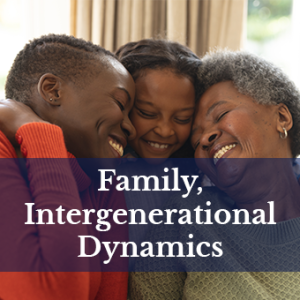
Threads of Connection: Exploring Relational Dynamics in Multigenerational South African Families
Presenter(s):
Gaboipewe Mathibe,Shingairai Chigeza, University of Pretoria, South Africa
Abstract
The historical legacies of apartheid, persistent socio-economic inequalities, and high youth unemployment rates continue to shape intergenerational relationships in South Africa. These structural pressures have compelled many families to adopt multigenerational living arrangements as a strategy to pool resources and ensure financial survival. While such arrangements offer economic relief, they also give rise to complex relational dynamics. This study explored the intergenerational experiences of families residing in a low-income South African community. A qualitative research design was employed, utilising semi-structured interviews that were thematically analysed. Twelve participants from four multigenerational families took part, with each family including representatives from three generational cohorts: grandparents (G1), parents (G2), and children (G3). Relational interactions among family members occurred along a continuum ranging from emotional distance to closeness, encompassing complementary and symmetrical relational patterns leading to relational tensions. From the perspective of young adults, interactions with older generations were frequently experienced as authoritative and rigid. Conversely, older generations perceived young adults as people who lack transparency, which further exacerbated communication barriers. Despite the presence of relational tensions, emotional closeness among family members remained evident, largely sustained through shared cultural practices that reinforced relational bonds. Traditional cultural practices, which are familiar and meaningful across generations, emerged as important sources of unity and emotional connection. These findings suggest that culturally rooted practices can play a critical role in supporting and strengthening intergenerational relationships within families. It is therefore recommended that interventions promoting intergenerational cohesion within families, particularly in low-income communities, incorporate and build upon traditional practices commonly valued by all generations.
Keywords: Intergenerational relationships, low-income communities, South Africa
Bio(s):
Gaboipewe Lindokuhle Mathibe is a Research Psychology Master’s candidate at the University of Pretoria and an emerging researcher in public health and social sciences. Her academic work explores the intersection of social systems, mental health, and community wellbeing in the South African context, with a focus on how structural and cultural factors influence interpersonal and community dynamics.
With a strong foundation in both academic inquiry and field implementation, Gaboipewe’s work spans community engagement, policy-focused research and evidence-based health programming. Her experience in stakeholder liaison and multidisciplinary research coordination has contributed to studies on HIV prevention, mental health and health equity.
She currently serves as a Research Assistant at The Aurum Institute, where she supports projects aimed at improving access to care for key populations. Her work has been presented at both national and international conferences, including the International AIDS Conference and the Public Health Association of South Africa.
Gaboipewe’s work reflects a deep commitment to translating research into practice, particularly in advancing inclusive and community-driven approaches to public health and social development. She is a member of the Psychological Society of South Africa (PsySSA), the Southern African HIV Clinicians Society (SAHCS), and is registered with the Health Professions Council of South Africa (HPCSA) as an Intern Research Psychologist.
